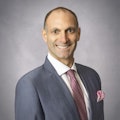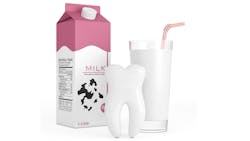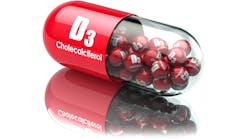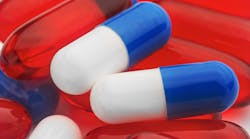Avoiding dairy products after tooth extraction and dental surgery: Debunking this myth
The statement that dairy should be avoided after tooth extraction or dental surgery is all over the internet, dentists’ websites, and artificial intelligence-generated pieces, because this misinformation has been consistently regurgitated, repurposed, and now scraped (via AI) over many years. This obsolete recommendation is thought to have originated from the now-irrelevant risk of contracting tuberculosis from unpasteurized or contaminated milk products.1 The most common reasons mentioned when searched on the internet are:
- Dairy causes an overgrowth of bacteria in the surgical site and can cause infection.
- Dairy causes the clot after extraction and surgery to break down.
- Dairy causes inflammation.
- Dairy can interfere with the action of antibiotics.
Most of these statements are either flat-out incorrect or contain only partial truths. In this article, we’ll look at the fact that there are no current studies to support avoidance of dairy after dental surgery and debunk this myth.2
Myth: Dairy causes an overgrowth of bacteria at the site of surgery.
There are no studies that show a localized overgrowth of bacteria at the site of extraction/surgery due to the consumption of dairy. What studies do show is that for people with lactose intolerance and those who cannot break down these food products, there can be an overgrowth of bacteria in the stomach that can affect gut diversity and microbiome.3 Nothing has been shown to be site-specific in the mouth.
Myth: Dairy causes the clot to break down and disrupts healing.
Fibrinolytic plasminogen, which is also found in milk, is believed to be responsible for the inhibition of clotting. The plasmin concentration in blood, however, is 100–1,000 times higher than in milk and is small in comparison to the concentration of plasminogen in the coagulum itself.4 Therefore, milk’s effect on clot breakdown has been shown to be negligible.
Myth: Dairy causes inflammation.
Again, for those who are lactose intolerant, dairy can cause the same reaction as those who have food sensitivities and inflammation when eating certain foods.5 This is a general inflammation and can affect the gut more than the dental surgery site or extraction socket.
Myth: Dairy interferes with antibiotics.
Milk and dairy products may indeed reduce bioavailability of tetracyclines by up to 80%.6 The most frequently used antibiotics in dentistry, however—such as amoxicillin, propicillin, phenoxymethylpenicillin, and clindamycin, and less frequently used cefaclor, cefuroxime, cefpodoxime, erythromycin, roxithromycin, clarithromycin, azithromycin, nitroimidazole, and metronidazole—do not interact with milk or dairy products.
What is the truth about dairy after dental surgery or tooth extraction?
Many dairy products are sticky. Sticky foods should be avoided for the first two weeks of healing as they can cause mechanical disruption of the site. Over one-third of Americans are lactose intolerant.7 Dairy is inflammatory for those with lactose intolerance who are having dental surgery. (These people should not be eating dairy with lactose anyway.) Dairy can promote gut imbalance and bacterial growth in the stomach for those who can’t break down lactose. For all other people, studies show dairy can be beneficial to gut microbiome and does not have negative effects after oral surgery.
Editor’s note: This article originally appeared in Perio-Implant Advisory, a chairside resource for dentists and hygienists that focuses on periodontal- and implant-related issues. Read more articles and subscribe to the newsletter.
References
- Mycobacterium bovis (bovine tuberculosis) in humans. Centers for Disease Control and Prevention. National Center for HIV/AIDS, Viral Hepatitis, STD, and TB Prevention. Division of Tuberculosis Elimination. August 2011. https://www.cdc.gov/tb/publications/factsheets/general/mbovis.pdf
- Seyedi Moghaddam S, Neff A. Avoidance of milk and dairy products after oral surgery—is such a recommendation still valid? A cross-sectional study among German and international oral and maxillofacial surgeons and dental practitioners with review of the literature. Oral Maxillofac Surg. 2022;26(4):563- doi:10.1007/s10006-021-01017-y
- Ghafoor A, Karunaratne T, Rao SSC. Bacterial overgrowth and lactose intolerance: how to best assess. Curr Opin Clin Nutr Metab Care. 2022;25(5):334-340. doi:10.1097/MCO.0000000000000861
- Belitz HD, Grosch W, Schieberle P. Lehrbuch der Lebensmittelchemie. Springer-Verlag; 2013.
- Food intolerances. Small intestinal bacterial overgrowth. Weill Cornell Medicine. Jill Roberts Center for Inflammatory Bowel Disease. https://jillrobertsibdcenter.weillcornell.org/nutrition-science/food-intolerances
- Neuvonen PJ. Interactions with the absorption of tetracyclines. Drugs. 1976;11(1):45-54. doi:10.2165/00003495-197611010-00004
- Storhaug CL, Fosse SK, Fadnes LT. Country, regional, and global estimates for lactose malabsorption in adults: a systematic review and meta-analysis. Lancet Gastroenterol Hepatol.2017;2(10):738-746. doi:10.1016/S2468-1253(17)30154-1
Scott Froum, DDS, a graduate of the State University of New York, Stony Brook School of Dental Medicine, is a periodontist in private practice at 1110 2nd Avenue, Suite 305, New York City, New York. He is the editorial director of Perio-Implant Advisory and serves on the editorial advisory board of Dental Economics. Dr. Froum, a diplomate of both the American Academy of Periodontology and the American Academy of Osseointegration, is a volunteer professor in the postgraduate periodontal program at SUNY Stony Brook School of Dental Medicine. He is a PhD candidate in the field of functional and integrative nutrition. Contact him through his website at drscottfroum.com or (212) 751-8530.
About the Author

Scott Froum, DDS
Editorial Director
Scott Froum, DDS, a graduate of the State University of New York, Stony Brook School of Dental Medicine, is a periodontist in private practice at 1110 2nd Avenue, Suite 305, New York City, New York. He is the editorial director of Perio-Implant Advisory and serves on the editorial advisory board of Dental Economics. Dr. Froum, a diplomate of both the American Academy of Periodontology and the American Academy of Osseointegration, is in the fellowship program at the American Academy of Anti-aging Medicine, and is a volunteer professor in the postgraduate periodontal program at SUNY Stony Brook School of Dental Medicine. He is a trained naturopath and is the scientific director of Meraki Integrative Functional Wellness Center. Contact him through his website at drscottfroum.com or (212) 751-8530.


